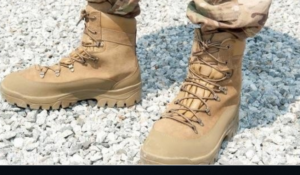General James Shane Joins VAMBOA Board
By Debbie Gregory.
VAMBOA is delighted to announce the addition of Brigadier General (Ret) James E. Shane to our Board. Jim has extensive executive management experience in business, marketing, communications, strategic planning, and public policy.
Jim’s experience includes twenty-eight years of leadership and executive management experience as a Senior Army Officer serving in high level leadership and decision-making positions. Jim spent eleven years working with state and federal elected leaders in the Commonwealth of Kentucky. His personal leadership style places a high priority on developing subordinates, recognizing excellence, and team-building to maximize individual and organizational performance.
Jim was also the President and CEO of Shane Business Enterprises, LLC, a small Veteran Owned Business that provided consulting services to businesses seeking to work with the defense industry. Additionally, he was the CEO of Mobile Armored Vehicle (MAV) which designed, manufactured and sold Armor Protected Vehicles to the U.S. and foreign governments. Jim understands the challenges of entrepreneurship.
Stay tuned for his bio on the site and a forthcoming press release.












